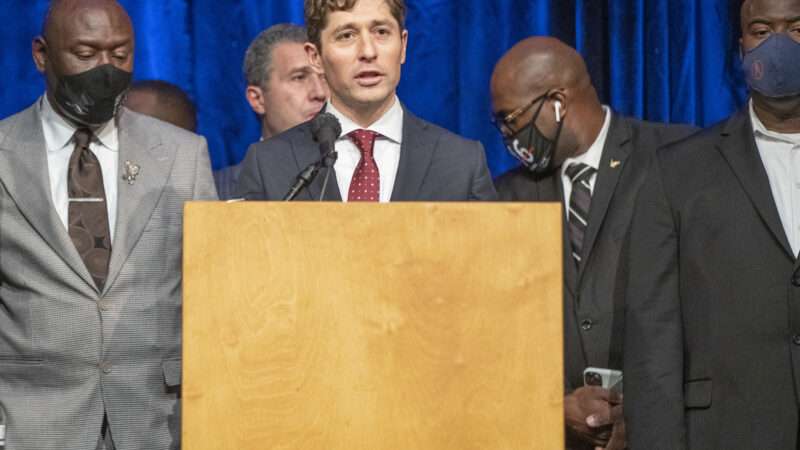
Minneapolis Mayor Jacob Frey has announced an end to no-knock search warrants in the city. The policy will ban city police from using or requesting no-knock warrants and implement modest reforms for how long police must wait to enter property after announcing themselves. But does the new policy go far enough to prevent needless deaths?
The change was inspired by the February death of Amir Locke, who was sleeping on his cousin’s couch when police executed a pre-dawn, no-knock raid. Locke responded to the aggressive intrusion by reaching for a gun that he was licensed to carry. Before Locke ever touched the trigger, a Minneapolis Police Department officer shot him three times from mere feet away. Locke later died.
“We accomplished what we set out to do,” Frey said in a press release, “This policy is among the most forward-looking and extensive in the nation and will help keep both our residents and officers safe. I’m grateful for all our internal and external partners who provided data, feedback, and guidance in the creation of this policy. Their efforts will have a lasting impact on public safety in Minneapolis.”
The policy mandates that police knock and wait for at least 20 seconds before entering. For warrants served between 8 p.m. and 7 a.m., the waiting period extends to 30 seconds. The new policy has exceptions for “exigent circumstances,” a list that includes stopping a suspect from attempting an escape or from harming themselves or someone else, as well as the need to prevent the destruction of narcotics.
The policy also classifies search warrants into low-, medium-, or high-risk categories. Officers are not allowed to use forced entry for low-risk warrants unless exigent circumstances arise. Medium-risk search warrants must be signed off by two supervisors. High-risk warrants will only be carried out by SWAT and must be approved by a commander. If conducted at night, they must be signed off by the deputy chief of investigations or someone above that rank.
But is this enough?
Following Locke’s death, Reason‘s Jacob Sullum observed that knocking and waiting, as opposed to entering without announcement, often still leads to unnecessary violence. “The Louisville cops banged on the door of [Breonna] Taylor’s apartment for about 30 seconds before breaking in and claimed they also announced themselves,” Sullum wrote. “She and [Kenneth] Walker still did not realize the intruders were police officers.” Taylor was killed by police and Walker was charged for using a gun in self-defense.
Sullum called for “a fundamental reevaluation” of “dynamic entry” tactics. While Minneapolis’s new policy may reduce the frequency of the riskiest kinds of raids, by preserving dynamic entry as an acceptable police practice, the city still leaves far too much room for tragedy.
The post Minneapolis Bans Police Use of No-Knock Warrants appeared first on Reason.com.
from Latest https://ift.tt/tDGzXha
via IFTTT